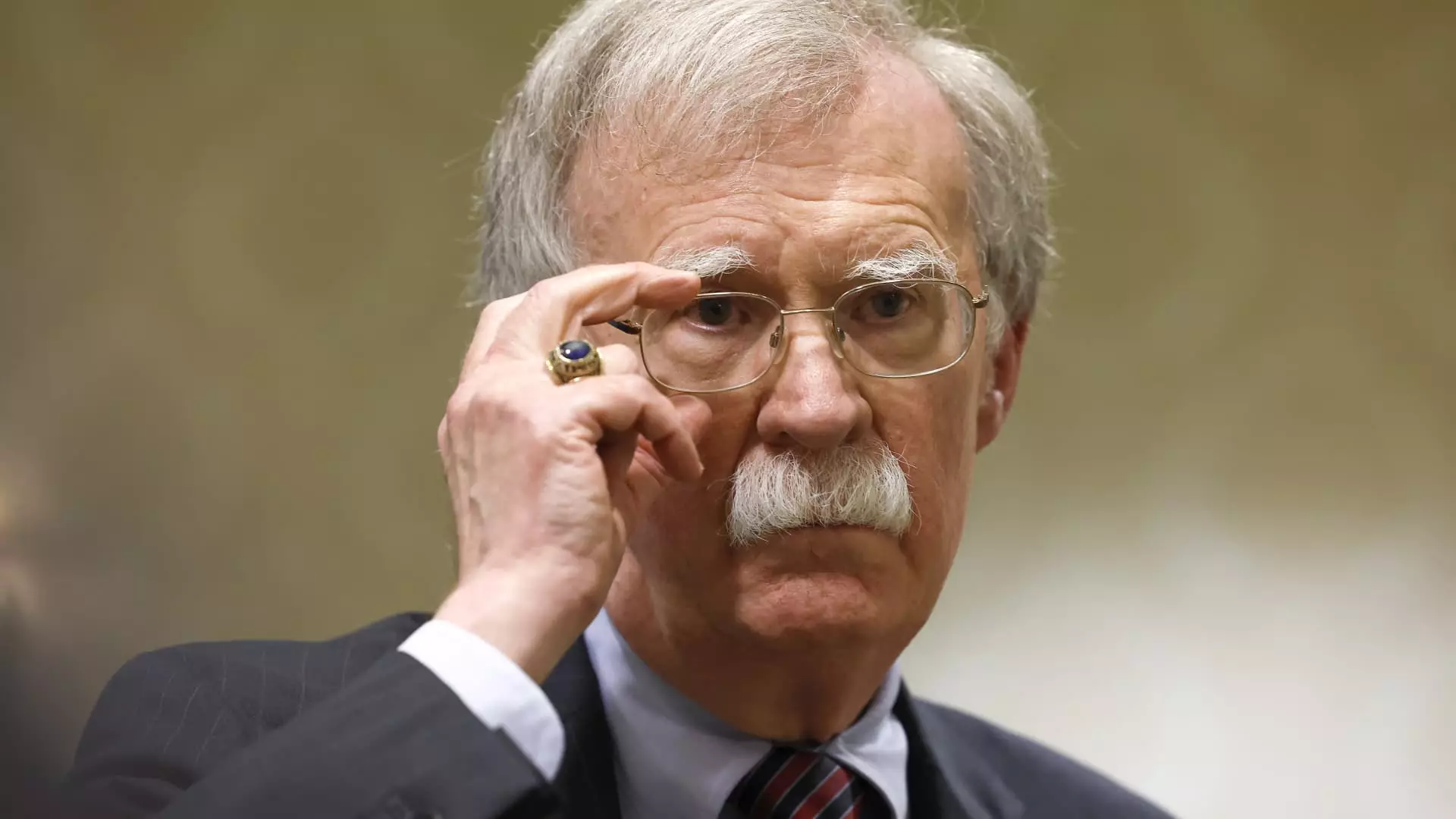The trade landscape has become a battleground, marked by the reckless tariff policies instituted by former President Donald Trump. His administration’s sweeping tariffs, aimed at taking on China, appear to have backfired spectacularly by not only isolating potential allies but also creating adverse reactions among global trading partners. The notion that slapping tariffs on allied nations would somehow coax compliance from rivals is, at best, delusionary. Critics like former National Security Advisor John Bolton aptly characterize this strategy as not just an economic misstep but a strategic blunder that risks the long-term global standing of the United States. The irony here is that Trump aimed to fortify American interests but instead wound up inhibiting them substantially.
Trump’s tariff rollout was premised on an ambiguous calculation that has drawn incredulity from economists. By treating nations with whom America shares a long-standing alliance as adversaries, he effectively opened the door for catastrophic implications. Tariffs targeting Mexico, Canada, and other allies while simultaneously escalating confrontations with China only magnified an already delicate international economic environment. While Trump’s advocates heralded this aggression as a necessary measure against perceived unfair practices by China, the broader implications remain troubling.
Global Economic Consequences
The chaos unleashed by Trump’s tariffs led to immediate volatility in global markets, as described by various analysts. The so-called “liberation day” quickly spiraled into a moment of financial lament, wiping out trillions in wealth and underscoring a key point: unilateral decisions often have collateral damage. Critics argue that a more collective approach, fostering collaboration with countries similarly aggrieved by China’s trade practices, would have been far more effective. Rather than building coalitions, Trump’s approach of disunity weakened American leverage on the international stage.
Add to this the tension surrounding U.S.-China relations, which escalated swiftly into a tit-for-tat tariff war, with both nations exchanging punitive measures that ultimately complicate economic recovery. Recent developments indicate that the U.S. tariffs on Chinese imports have soared to 145%, juxtaposed against China’s own tariffs of 125% on American goods. This mutual aggression creates a no-win situation, with ordinary consumers and businesses bearing the brunt of these ineffectual policies. The toll on American consumers is both detrimental and counterproductive, raising prices on a wide array of goods and services.
Credibility and Trust Erosion
International leaders have begun vocally contesting Trump’s approach, fearing irrevocable damage to the credibility of U.S. leadership. French Prime Minister François Bayrou’s statement about a “hurricane” unleashed by the U.S. presidency encapsulates widespread discontent among allies while highlighting an essential truth: trust, once fractured, is hard to rebuild. Trump’s inability to discern the long-term ramifications of estranging allies is evident in the remarks of figures like Bolton, who lament that the erosion of American credibility could reshape geopolitical dynamics for decades.
China, in particular, has maneuvered to seize this moment of American distraction to bolster its alliances in Southeast Asia. Xi Jinping’s charm offensive travels through nations like Vietnam, Malaysia, and Cambodia—places where Chinese influence is expanding, often at the expense of U.S. interests. It’s a masterclass in international diplomacy contrasted sharply against America’s erratic policies. The inability of Trump’s administration to navigate these waters effectively undermined not only U.S. standing but diluted the leverage that could have been harnessed through cooperative efforts.
A Pathway to Cooperation?
Bolton’s call for collaboration with countries like Japan, Korea, and Singapore serves as a clarion reminder that the best path to confronting China’s unfair practices lies in collective action. The strategic dialogue that should have emerged from this economic imbalance is stifled by Trump’s aggressive isolationist policies, which, paradoxically, have weakened the hands of those most capable of countering China’s maneuvers.
Rather than maintaining a narrow focus on tariffs as a weapon, the U.S. should consider the larger implications of its foreign economic relations. Engaging allies diplomatically while developing unified stances on trade practices could yield far greater benefits. However, as the current landscape indicates, the mismanagement of trade diplomacy not only sets a perilous precedent but could redefine America’s role in the global economy for generations to come. The questions now arise: How will this era of disastrous trade policy reshape political alignments? And can the U.S. reclaim its position as a leader in international economic relationships, or will it continue to spiral into the isolation wrought by its own decisions?


Leave a Reply